43 illuminating parts of microscope
17 Parts of a Microscope (Optical and Structural Parts) - The Biology Notes The list of 17 parts of a microscope Illuminator (Light Source) Diaphragm (Iris) Condenser Condenser Focus Knob Rack Stop Stage Stage Control Knobs Nose Piece Objective Lens Tube (Head) Eyepiece (Ocular Lens) Diopter Adjustment Adjustment Knobs a. Fine Adjustment Knob b. Coarse Adjustment Knob Arm Base Light Switch Brightness Adjustment microscopewiki.com › compound-microscopeCompound Microscope – Diagram (Parts labelled), Principle and ... The three structural components include: 1. Head - This is the upper part of the microscope that houses the optical parts 2. Arm - This part connects the head with the base and provides stability to the microscope. Arm is used to carry the microscope around 3. Base - Base is on which the microscope rests and the base houses the illuminator that lights up the specimens
LIGHT, OPTICAL OR COMPOUND MICROSCOPE | LAB INFORMATION - Paramedics World Illuminating parts Mechanical Parts of Compound Microscope - The mechanical parts consists of the following components - ⇒ Tube - the tube can be straight and fixed or bent and movable. It is hollow and holds the objectives at the lower end and the eyepiece at the upper end. ⇒ Body - the body gives support to the tube.

Illuminating parts of microscope
What are the illuminating, Magnifying and Mechanical parts of a microscope? What are the illuminating, Magnifying and Mechanical parts of a microscope? Expert-verified answer Babzki #BrainlyFast Illuminating Part Illuminator Aperture Condenser Iris Diaphragm Mirror Magnifying Part Eyepiece or Ocular Eyepiece Tube Objective Lenses Nosepiece Coarse and Fine Focus knobs Stage Mechanical Part Head/Body Base Arm Anatomy of a Microscope - Microscope Illumination - Labcompare This method of microscope illumination was first developed by British microscopist Edward Nelson using optical principles advanced by Ernst Abbe. Nelsonian illumination was used very successfully by microscopists from the latter part of the Nineteenth Century until well into the Twentieth Century. Today, there are still some advocates of ... illuminating parts of the microscope - Brainly.ph The illuminating parts of the microscope are the mirror and the iris diaphragm . Advertisement Advertisement New questions in Science. explain why nitrogen is the most abundant gas in the atmosphere Petroleum or crude oil is considered as ""black gold"".Why do you think it's categorized as ""gold""?. What are the benefits man can get from ...
Illuminating parts of microscope. Which are the illuminating parts of the microscope? What is the illuminating parts of microscope? Parts of a Microscope It consists of mainly three parts: Mechanical part - base, c-shaped arm and stage. Magnifying part - objective lens and ocular lens. Illuminating part - sub stage condenser, iris diaphragm, light source. What is illumination source? What is the Illuminating parts of compound microscope? - Answers The illuminating parts of a microscope allow you to see details of objects that are placed under the microscope. The illuminating parts include the condenser mirror, sub-stage condenser, and the ... Microscope Parts & Functions - AmScope Stereo Microscope: A low power microscope or dissecting microscope with a separate eyepiece and objective lens for each eye. These separate optical channels enable stereo or three-dimensional images of the specimen. See Compound Microscope. Sub-Stage: The parts of the microscope below the stage, including the illumination system. en.wikipedia.org › wiki › Phase-contrast_microscopyPhase-contrast microscopy - Wikipedia The ring-shaped illuminating light (green) that passes the condenser annulus is focused on the specimen by the condenser. Some of the illuminating light is scattered by the specimen (yellow). The remaining light is unaffected by the specimen and forms the background light (red).
Illuminating parts of the microscope Flashcards | Quizlet Created by gempineda Terms in this set (3) mirror gathers the light that will be used diaphragm regulates the amount of light to obtain view of the object which is the sample condenser set of lenses that concentrate the light to the specimen Sets found in the same folder Microbiology Lab Quiz #2 78 terms kmailloux2 Mechanical Parts of Microscope Light Microscope (Theory) - Amrita Vishwa Vidyapeetham Parts of a Microscope . It consists of mainly three parts: Mechanical part - base, c-shaped arm and stage. Magnifying part - objective lens and ocular lens. Illuminating part - sub stage condenser, iris diaphragm, light source. Mechanical part. Base: It helps in holding the various parts of microscope. It also contains the light source. Compound Microscope Parts The three basic, structural components of a compound microscope are the head, base and arm. Head/Body houses the optical parts in the upper part of the microscope. Base of the microscope supports the microscope and houses the illuminator. Arm connects to the base and supports the microscope head. It is also used to carry the microscope. microscope - The illumination system | Britannica In a modern microscope it consists of a light source, such as an electric lamp or a light-emitting diode, and a lens system forming the condenser. The condenser is placed below the stage and concentrates the light, providing bright, uniform illumination in the region of the object under observation.
› how-does-a-microscopeHow does a Microscope work The resolution is determined by the frequency of the light waves illuminating the specimen and the quality of the lens. A rule of optical physics is that the shorter the wave length the greater the resolution. Usually expressed in microns, the best resolution a light microscope can produce is 0.2 microns or 200 nanometers. › en › microscopeMicroscope Image Analysis Software | OLYMPUS Stream | Olympus For advanced micro-imaging software that allows you to seamlessly acquire, process, and measure images, our Olympus Stream is the perfect model for you. What are the illuminating and mechanical parts of a microscope? What ... In a standard Light Microscope, light is the source of illumination, unlike in an Electron Microscope the source of 'illumination' is an electron beam that passes through or over the sample, these two being the more common types of microscopes used. More answers below Joshua Tay Author has 116 answers and 696.5K answer views 5 y Why are there important illuminating parts of a microscope? Lighting or illumination is crucial to the operations of a microscope. Without light, the microscope is just another body of prisms, mirrors and magnifying glasses. Illumination is needed to give the various colors to minerals (Petrographic Microscopes). The various parts assist splitting light into the the seven primary colors.
Microscope Illumination - Florida State University Throughout the optical pathway of the microscope, illumination is directed and focused through a series of diaphragms and lenses as it travels from the source to illuminate the specimen and then into the eyepieces or camera attachment.
Microscope Parts and Functions All of the parts of a microscope work together - The light from the illuminator passes through the aperture, through the slide, and through the objective lens, where the image of the specimen is magnified.
microbeonline.com › electron-microscope-principleElectron Microscope: Principle, Types, Applications Aug 19, 2022 · Types of Electron Microscope. There are two types of electron microscopes, with different operating styles: the transmission electron microscope (TEM) and the scanning electron microscope (SEM). Transmission Electron Microscope (TEM) As the name suggests, this type uses transmitted electrons as light sources.
Common Illumination Methods: Microscope Illumination Methods ... - KEYENCE There are two types of transmitted illumination: brightfield and darkfield: - Brightfield illumination A general method to observe samples by illuminating the back surface to make it transparent. Against a bright background, it projects the parts darker than the background. - Darkfield illumination
Which are the illuminating parts of the microscope? What is the illuminating elements of microscope? Parts of a Microscope It consists of primarily three elements: Mechanical half - base, c-shaped arm and stage. Magnifying half - goal lens and ocular lens. Illuminating half - sub stage condenser, iris diaphragm, mild supply. What is illumination supply?
Parts of a microscope with functions and labeled diagram - Microbe Notes Q. List down the 18 parts of a Microscope. 1. Ocular Lens (Eye Piece) 2. Diopter Adjustment 3. Head 4. Nose Piece 5. Objective Lens 6. Arm (Carrying Handle) 7. Mechanical Stage 8. Stage Clip 9. Aperture 10. Diaphragm 11. Condenser 12. Coarse Adjustment 13. Fine Adjustment 14. Illuminator (Light Source) 15. Stage Controls 16. Base 17.
theoptics.org › light-microscope-vs-electronLight Microscope vs Electron Microscope: 7 Main Differences Jun 27, 2022 · We’ll break down the different parts of the two microscopes and discuss their features and abilities. Our aim is to illuminate you on all the possibilities the light and the electron microscope bring. Light microscope anatomy. If you’re completely new to the world of microscopes, a light microscope is the best place to start.
What are the mechanical magnifying and illuminating parts of a ... Three main parts of microscope? 1. Mechanical Parts- refer to the parts that serve as the framework of the apparatus.2.Illuminating or optical parts- produce light entering he microscope3.Magnifyig...
Microscope Components and Concept of Illumination - ZEISS The vertical illuminator is horizontally oriented at a 90-degree angle to the optical axis of the microscope and parallel to the table top, with the lamp housing attached to the back of the illuminator. The coarse and fine adjustment knobs raise or lower the stage in large or small increments to bring the specimen into sharp focus.
The Parts of a Light Microscope - How Light Microscopes Work ... The Parts of a Light Microscope. A light microscope, whether a simple student microscope or a complex research microscope, has the following basic systems: Specimen control - hold and manipulate the specimen stage - where the specimen rests clips - used to hold the specimen still on the stage (Because you are looking at a magnified image, even ...
› books › NBK26880Looking at the Structure of Cells in the Microscope ... The microscope is generally used with fluorescence optics (see Figure 9-12), but instead of illuminating the whole specimen at once, in the usual way, the optical system at any instant focuses a spot of light onto a single point at a specific depth in the specimen. A very bright source of pinpoint illumination is required; this is usually ...
Lesson 4 magnifying and illuminating parts of the - Course Hero 2. The function of the illuminating parts of the microscope is to provide light to the specimen What's More Enrichment Activity 1: Parts of the Microscope Sort Mechanical Parts: 1. base 6. body tube 2. inclination joint 7. draw tube 3. stage 8. course focus 4. stage clips 9. fine focus 5. arm
Microscope Parts, Function, and Care - YouTube In this video Dr. Patricks demonstrates the parts and functions of a compound light microscope. She demonstrates the function of each part. In addition, safe...
Anatomy of a Microscope - Microscope Illumination | Olympus LS Critical (or Nelsonian) Illumination - This method of microscope illumination was first developed by British microscopist Edward Nelson using optical principles advanced by Ernst Abbe. Nelsonian illumination was used very successfully by microscopists from the latter part of the Nineteenth Century until well into the Twentieth Century.
Parts of a Microscope and Their Functions - Microbiology Note There are present three important structural parts of microscope such as; 1. Head It is located at the upper portion of microscope. The head portion of microscope is also known as the Body tube. Application: The head portion or body tube of microscope connects the eyepiece to the objective lenses. 2. Arm
illuminating parts of the microscope - Brainly.ph The illuminating parts of the microscope are the mirror and the iris diaphragm . Advertisement Advertisement New questions in Science. explain why nitrogen is the most abundant gas in the atmosphere Petroleum or crude oil is considered as ""black gold"".Why do you think it's categorized as ""gold""?. What are the benefits man can get from ...
Anatomy of a Microscope - Microscope Illumination - Labcompare This method of microscope illumination was first developed by British microscopist Edward Nelson using optical principles advanced by Ernst Abbe. Nelsonian illumination was used very successfully by microscopists from the latter part of the Nineteenth Century until well into the Twentieth Century. Today, there are still some advocates of ...
What are the illuminating, Magnifying and Mechanical parts of a microscope? What are the illuminating, Magnifying and Mechanical parts of a microscope? Expert-verified answer Babzki #BrainlyFast Illuminating Part Illuminator Aperture Condenser Iris Diaphragm Mirror Magnifying Part Eyepiece or Ocular Eyepiece Tube Objective Lenses Nosepiece Coarse and Fine Focus knobs Stage Mechanical Part Head/Body Base Arm
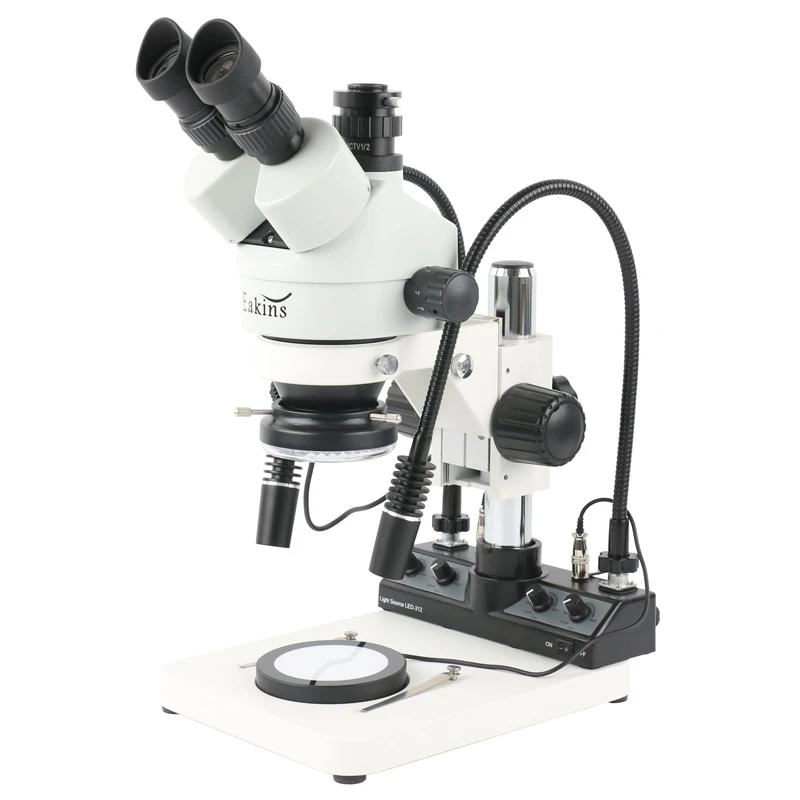
32mm 25mm 4 IN 1 LED Video Stereo Microscope Camera Illuminator Spot Light Dual LED Gooseneck + 80 LED Ring Light + Base Light
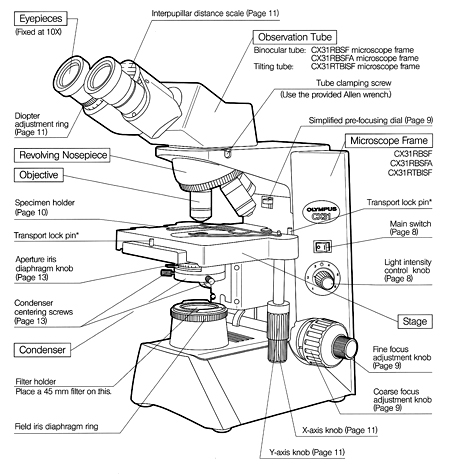
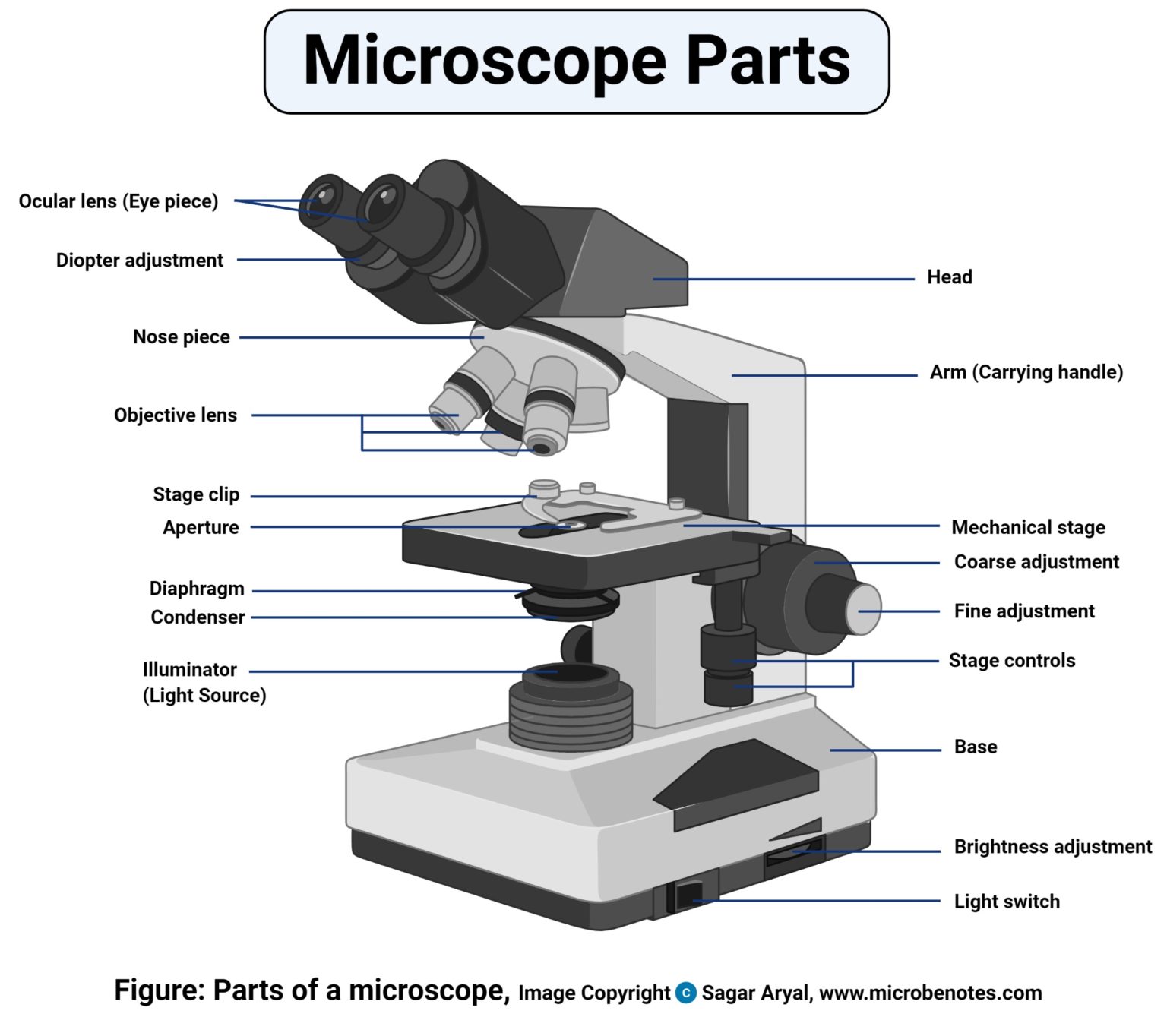
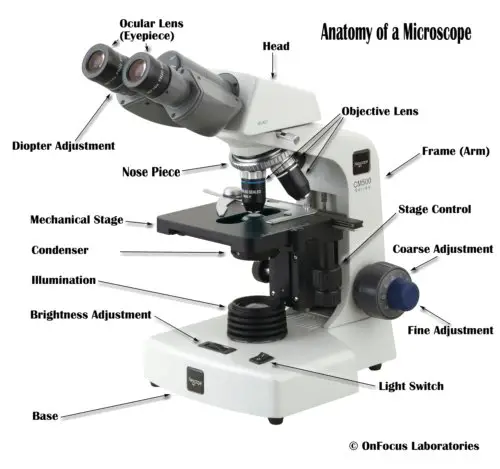
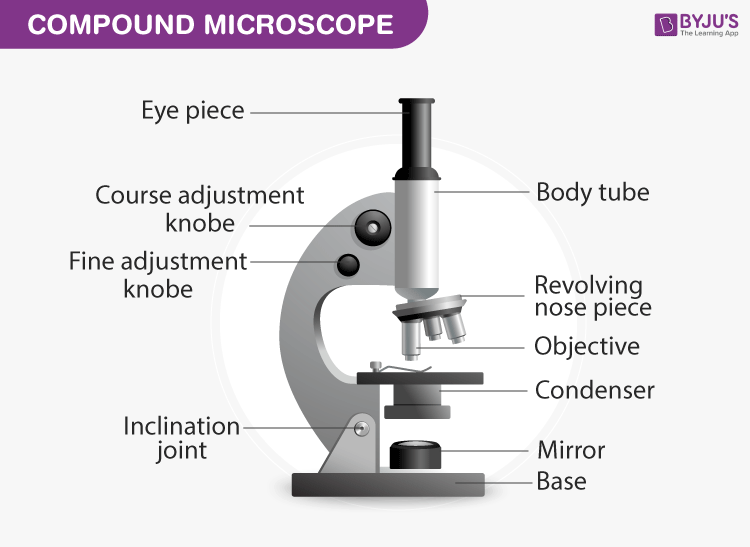


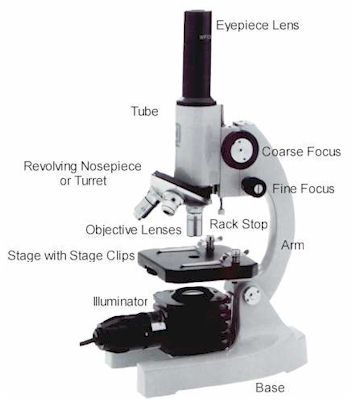
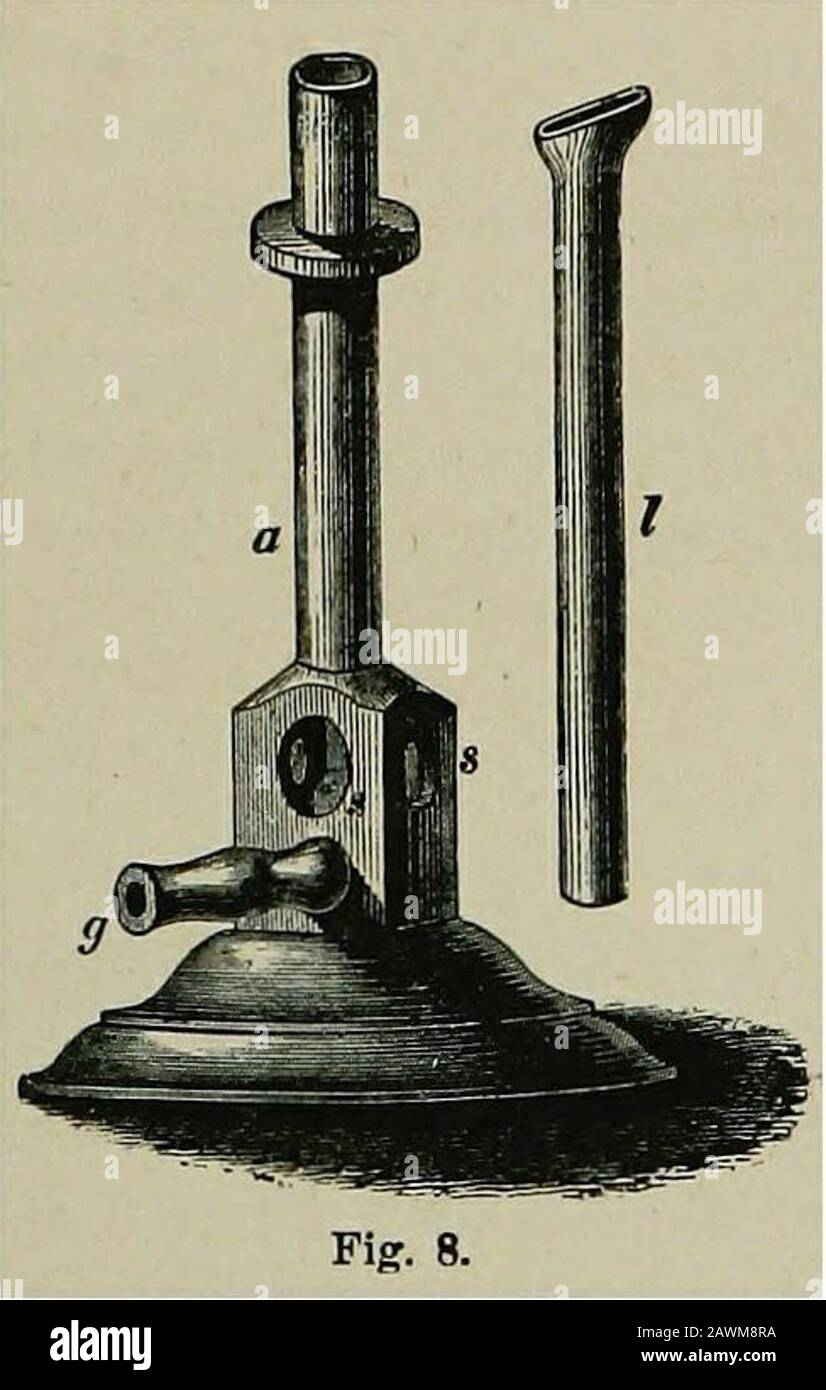


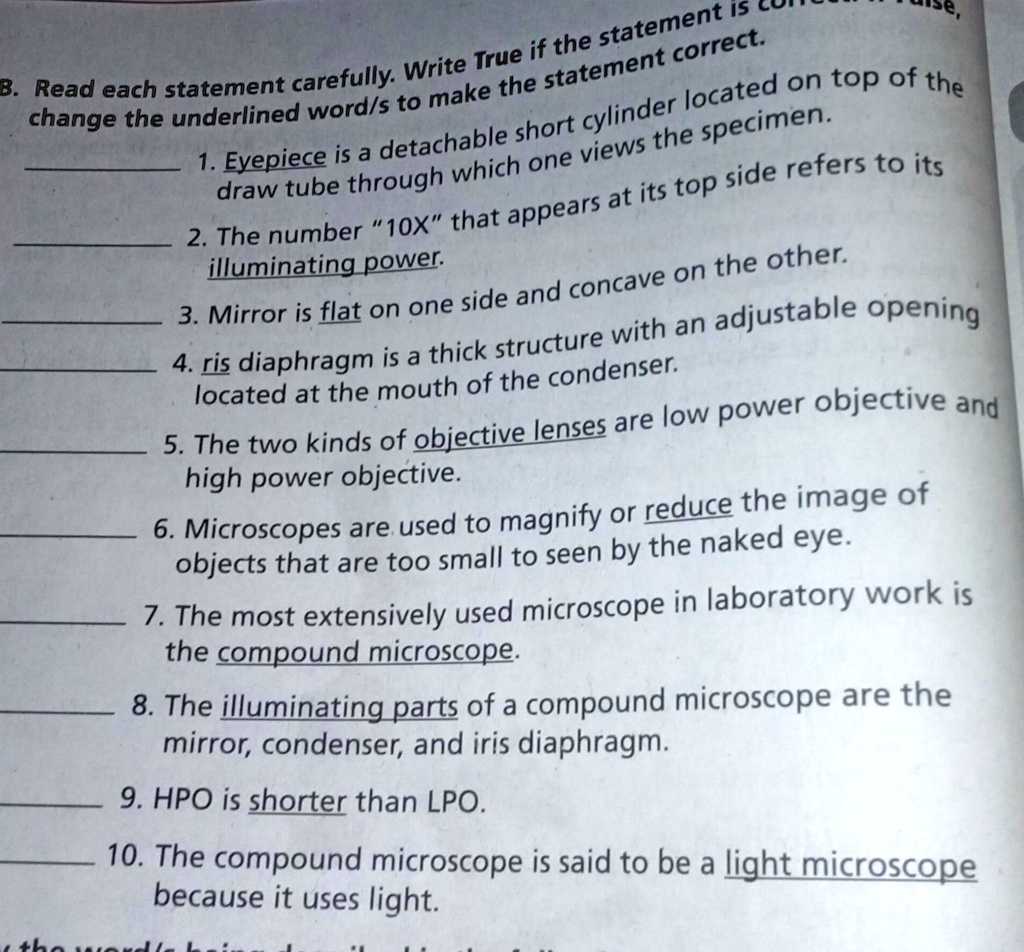
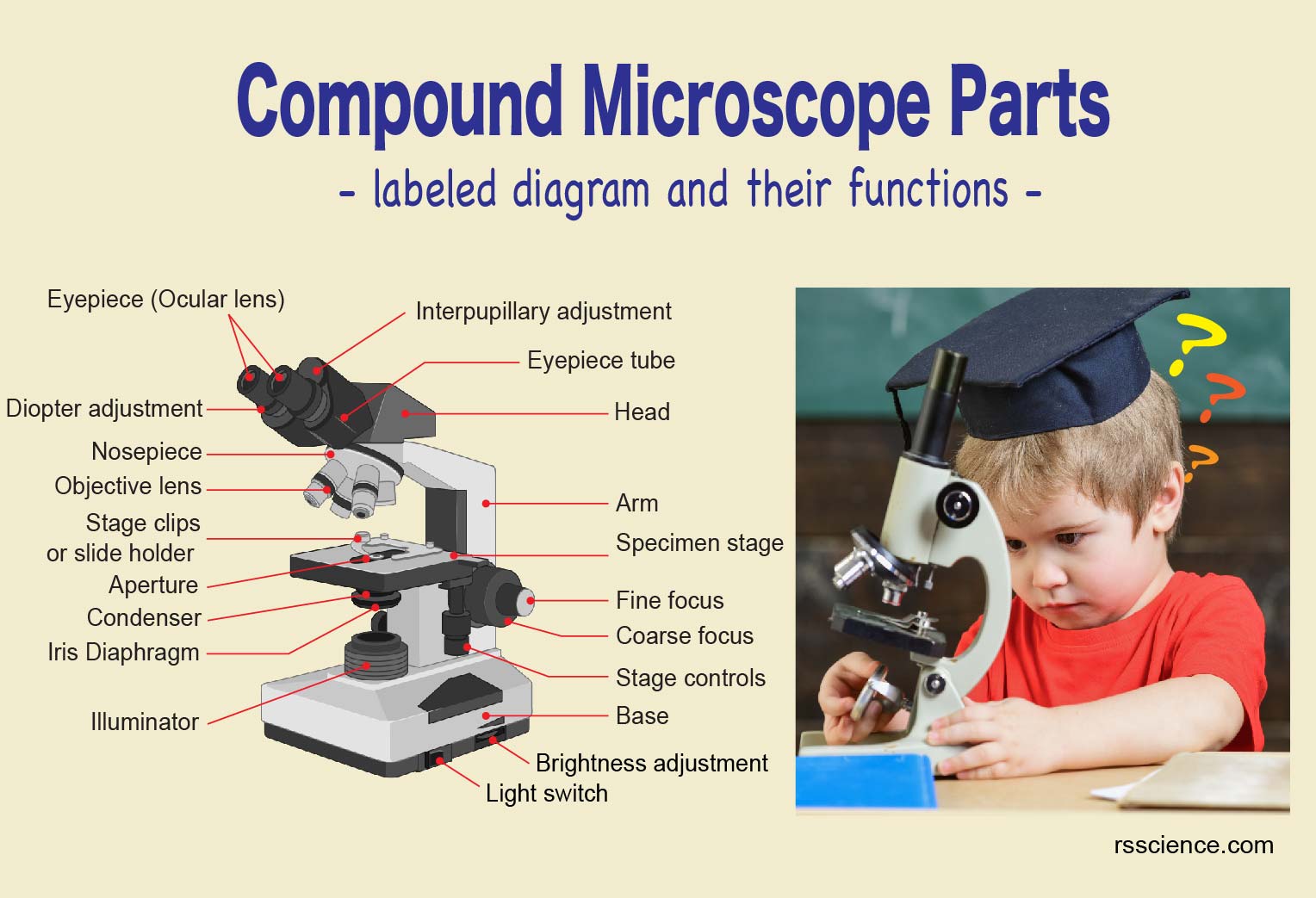
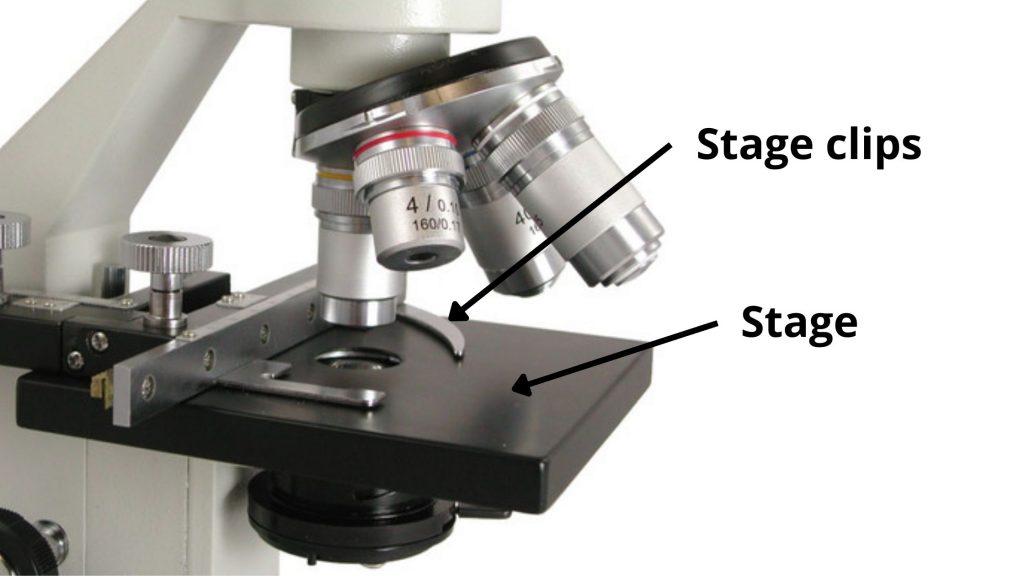

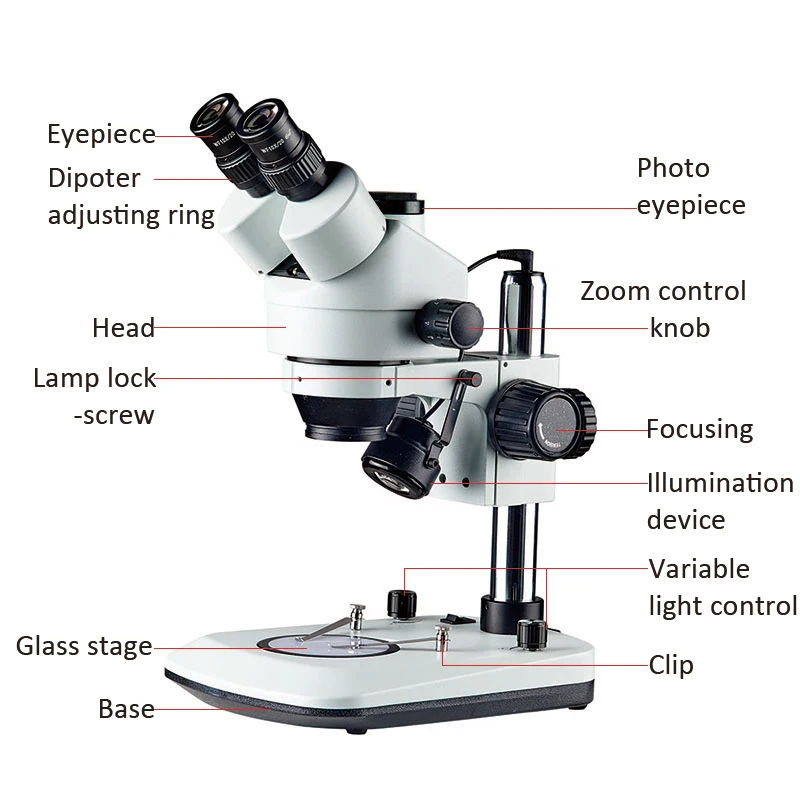
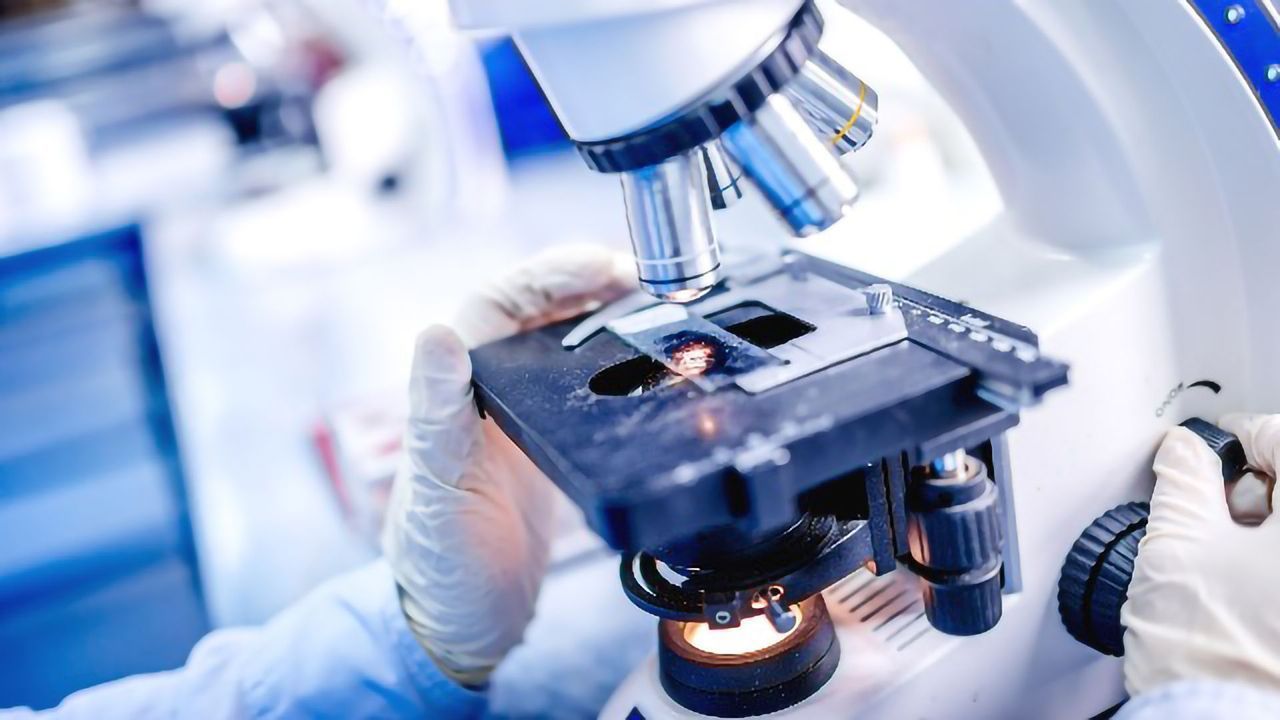

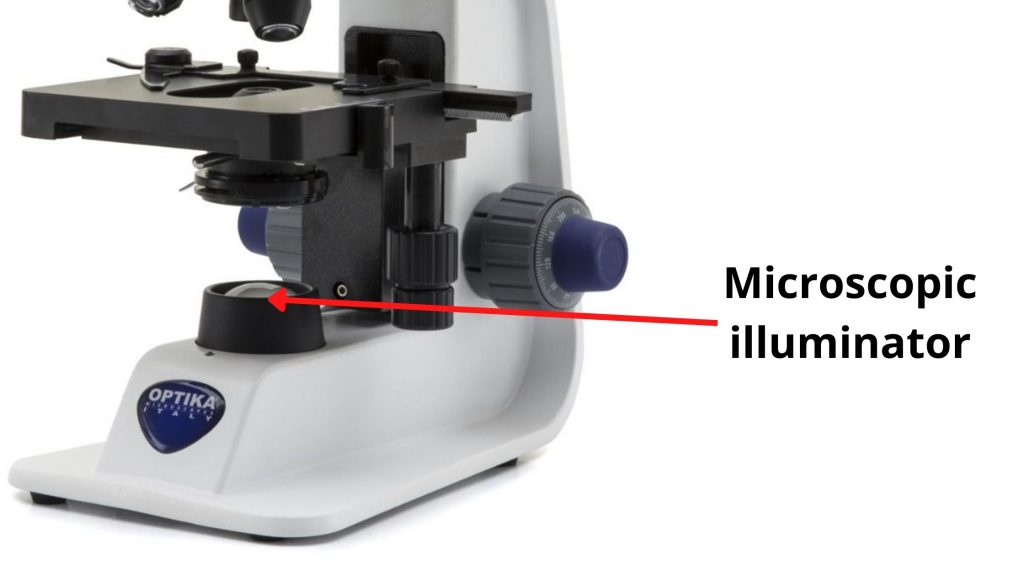
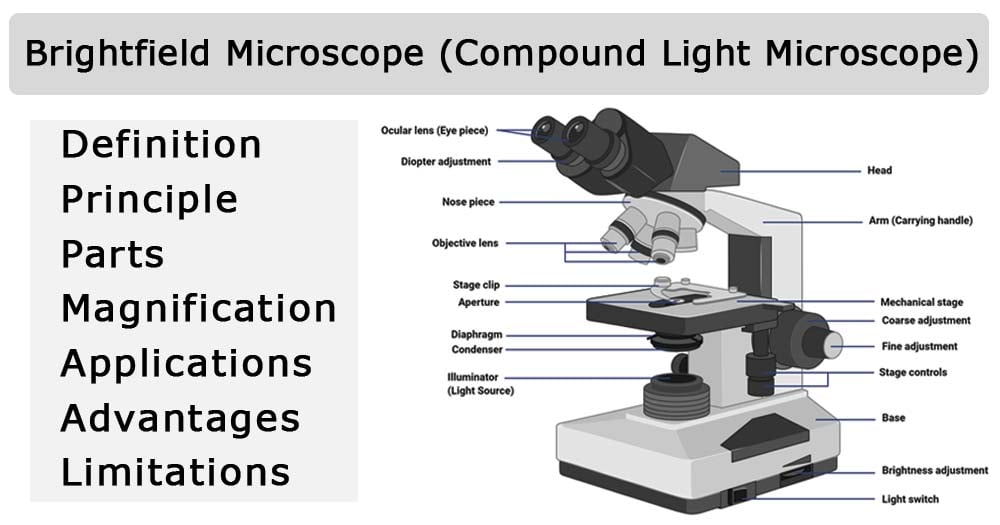
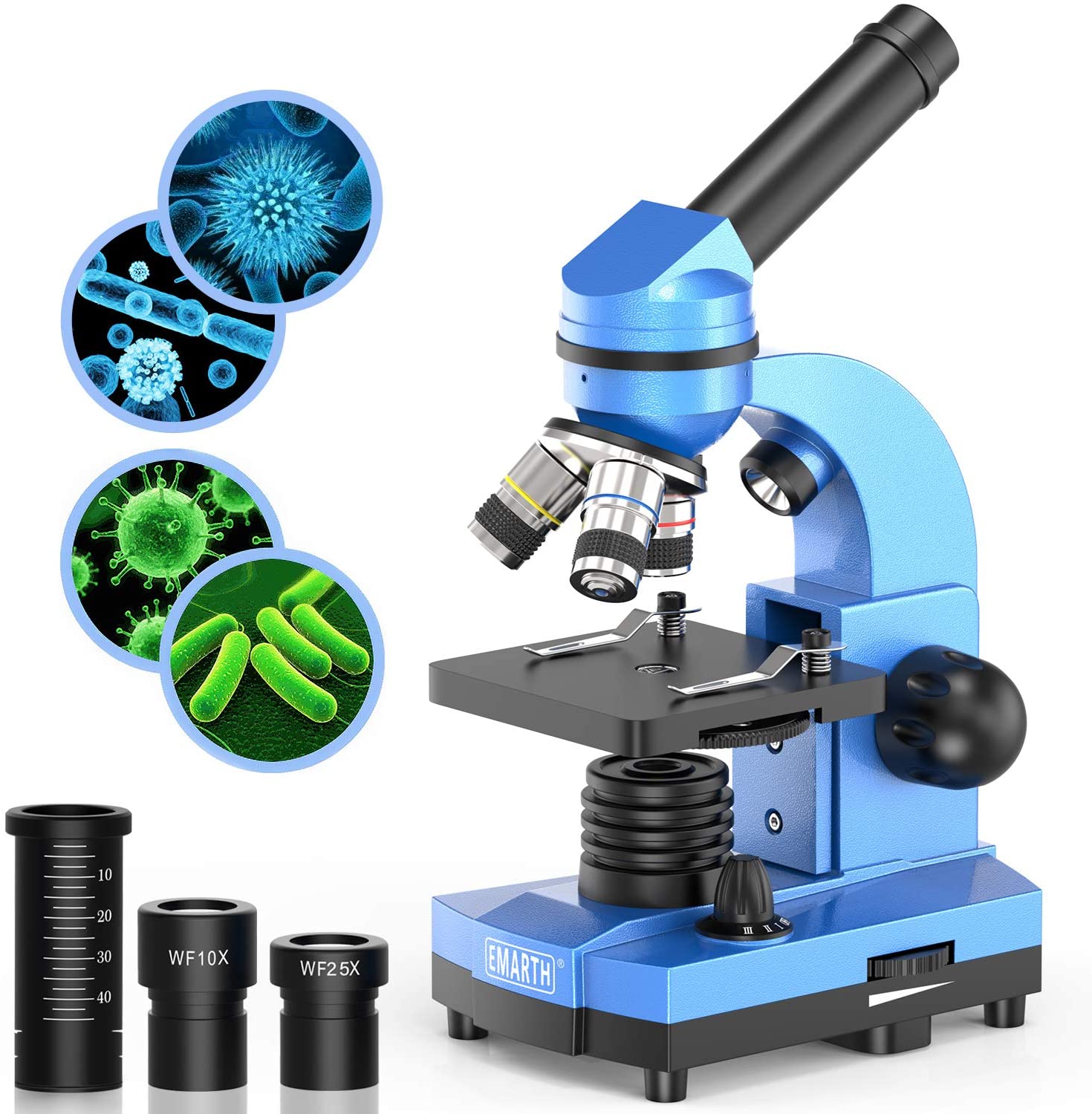

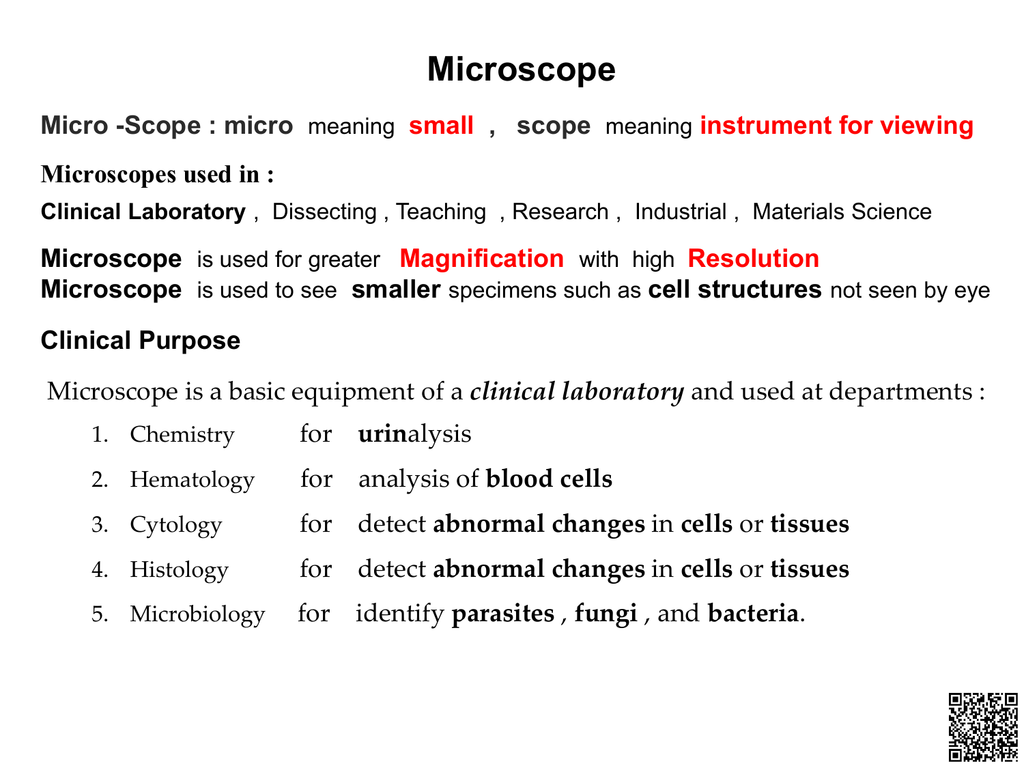





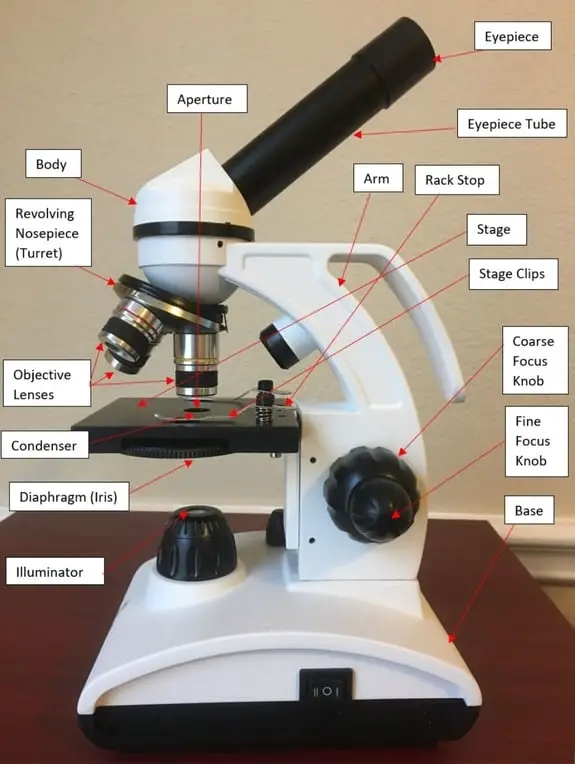

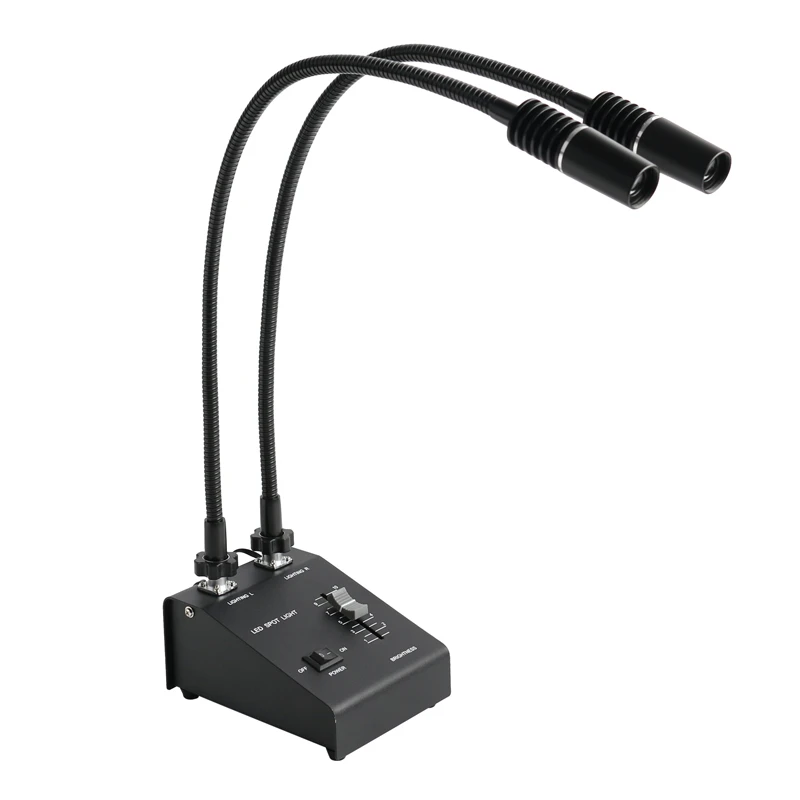
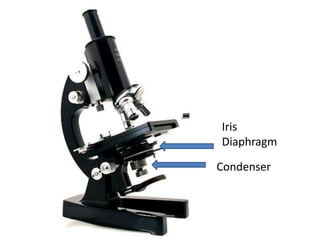
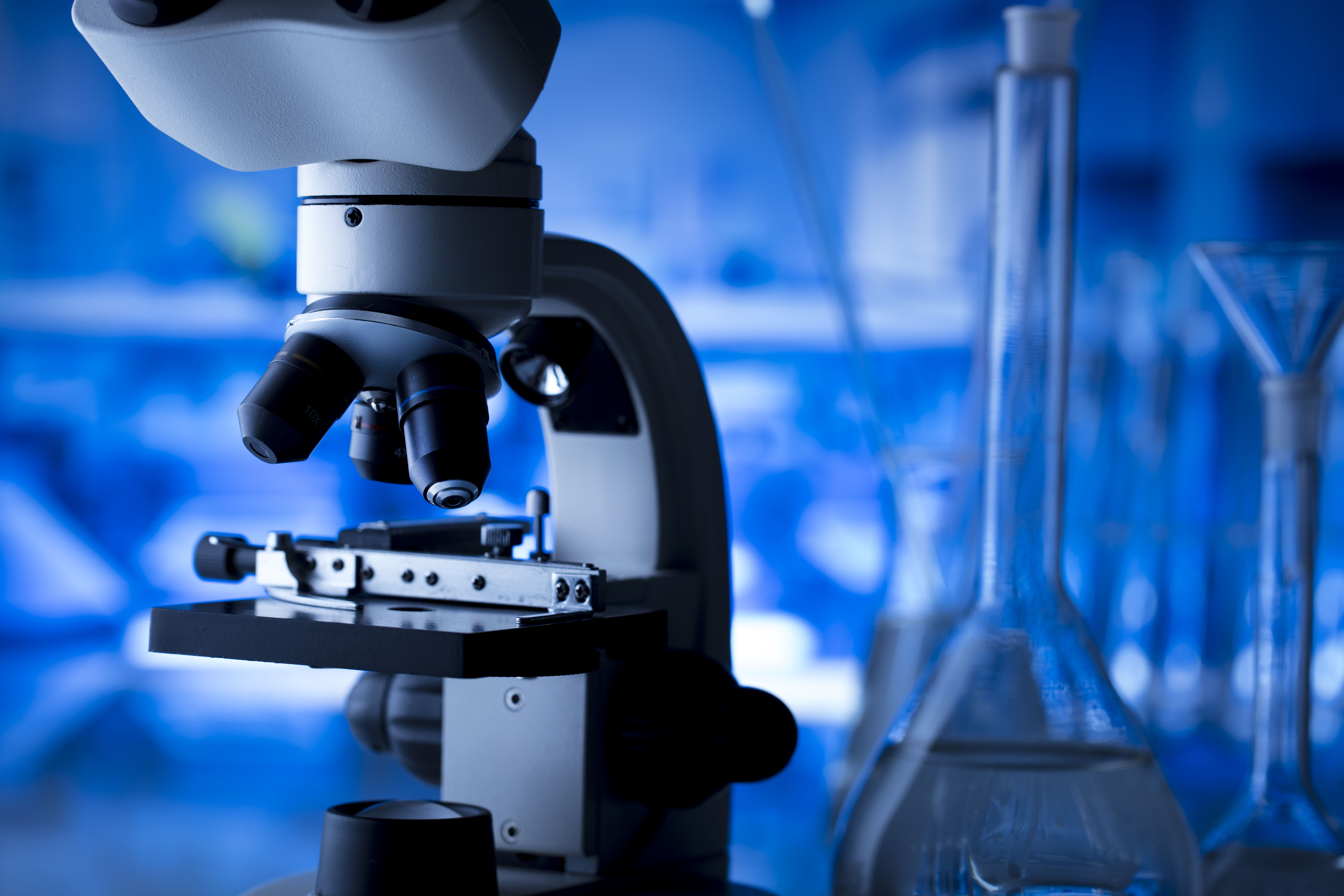





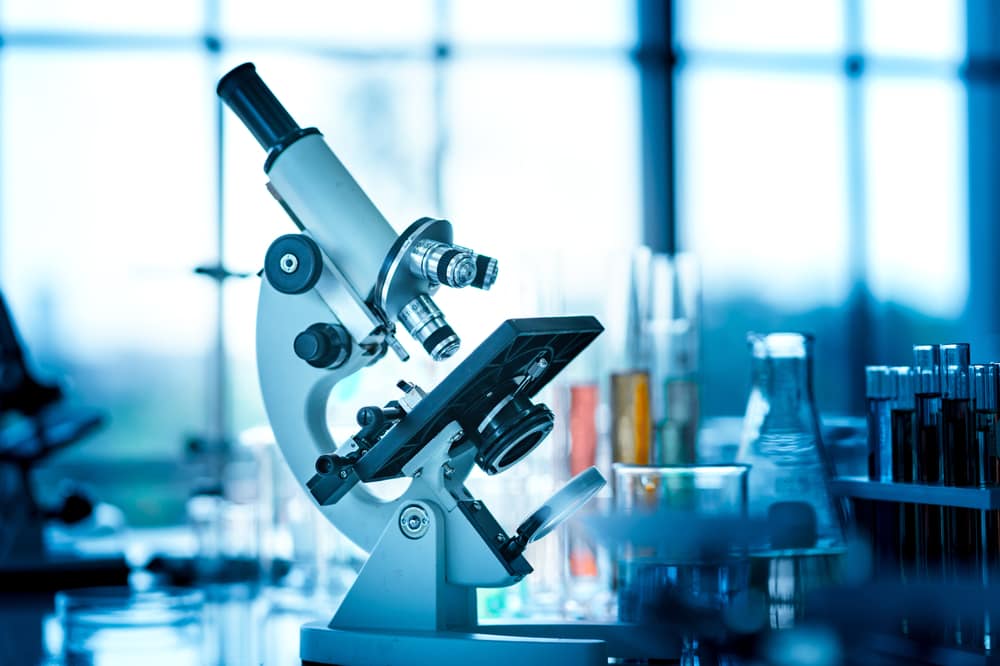

Post a Comment for "43 illuminating parts of microscope"